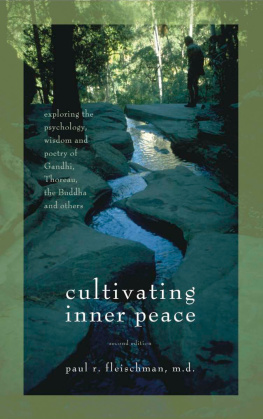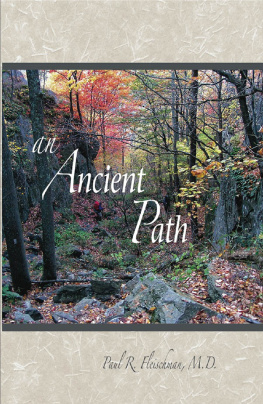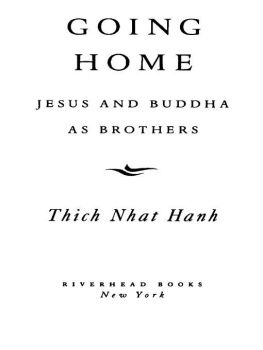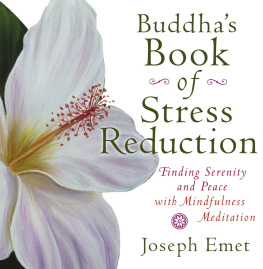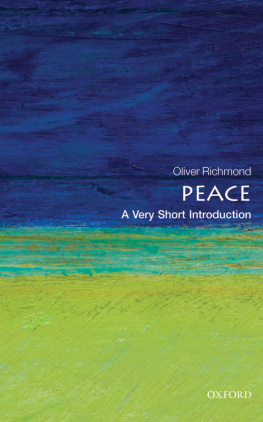Pariyatti Press
(an imprint of Pariyatti Publishing)
867 Larmon Road
Onalaska, WA 98570, USA
www.pariyatti.org
1997, 2003 Paul R. Fleischman, M.D.
First Edition, 1997
Second edition, 2004
Reprint: 2010
All Rights Reserved. No part of this book may be used or reproduced in any manner whatsoever without prior written permission of Pariyatti Press, except in the case of brief quotations embodied in critical articles and reviews.
| ISBN: | 978-1-928706-25-0 Print |
| 978-1-928706-66-3 Ebook (PDF) |
| 978-1-928706-67-0 Ebook (ePub) |
Library of Congress Control Number: 2003112385
Cover photograph and cover design by Julie Schaeffer
Permissions
Excerpts from Living the Good Life by Helen and Scott Nearing, Copyright 1954, copyright renewed 1982 by Helen Nearing. Reprinted by permission of Shocken Books, distributed by Pantheon Books, a division of Random House, Inc.
Excerpts from A Flight of Swans by A. Bose, John Murray (Publishers) Ltd.
Excerpts from Harding, W. The Days of Henry Thoreau, A Biography, Dover, N.Y., 1982, see pp. 454-68.
Approximately 65 words from The Bhagavad Gita, translated by Juan Mascar (Penguin Classics, 1962), copyright Juan Mascar, 1962. Reproduced by permission of Penguin Books Ltd.
Approximately 60 words from The Dhammapada, translated by Juan Mascar (Pen guin Classics, 1973), copyright Juan Mascar, 1973. Reprinted by permission of Penguin Books Ltd.
Extract from The Boderland-9 by Rabindranath Tagore From Selected Poems by Rabindranath Tagore, translated by William Radice (Penguin Modern Classics, 1985). Translation copyright William Radice, 1985. Reproduced by permission of Penguin Books Ltd.
Permission to reprint the poetry of Nyogen Senazki kindly granted by Eido Shi-mano Roshi, Abbot, The Zen Studies Society, Inc.
Excerpts from Like a Dream, Like a Fantasy edited with an introduction by Eido Shimano Roshi, copyright 1978, The Zen Studies Society, Inc.
FOREWORD
WHEN, IN PREPARATION FOR THIS FOREWORD, I had a long telephone conversation with Paul Fleischman, the first thing I told him was that my family and friends were teasing me for reading his book. Id been rereading it over Christmas, a time when we all ought to cultivate peace. Yet everyone was cheerfully agreeing, with British flippancy, that a world in which all of humanity had successfully cultivated inner peace would be appallingly boringinhuman, too. To my relief, Paul took this point very well.
He also responded benignly when I told him I was thinking of writing a book called American Friends, to explore how Americans think about the world. He said he would gladly be one of my interviewees, and in a follow-up emailwith teasing out peace in the subject line, and written just before departing for India for six weeks of concentration on Vipassana meditationhe assured me (referring to his son):
During his high school years Forrest trained us in the ways of Monty Python. So we are now prepared to meet the British invasion head on.
A week or two later, on a beautiful, snowy yet sunny day, I walked with friends along the west side of the Pennines, not far from my Northumberland home. I found myself thinking about Pauls book a lot, as I had just finished it. The day was of a sort that comes to us rarely: perfect weather, perfect company, perfect happiness. We cant live like that all the time, and I dont think most of us would want to. Apart from other drawbacks, how would we fully appreciate such days if there were not other, less happy days to compare them with?
Reflecting on this question, after talking to Paul and finishing his book, I concluded that he had addressed it fully. He is the last person to want everyone to go around in a state of perpetual serenity, with beatificand intensely irritating!smiles on their faces. He sounded very calm on the phone, despite the fact he had wrenched his knee badly while skiing, four days before he and Susan were due to leave. Yet I expect, like all of us, he can get ratty and impatient at times; even as a psychiatrist, listening to his patients sagas of inner pain and turmoil, he might sometimes feel bored, though it would be professional suicide to admit to that.
He told me that Vipassana meditation in fact involves phases of considerable, subjective turbulence before calm and objectivity are achieved. In the chapter of his book where he writes of his personal experience of meditation, he emphasizes the unveiling of ceaseless change the fluidity and impermanence of every particle of your being. That itself is not peaceful; but direct awareness of it can be.
He is also fond of quoting Robert Louis Stevensons: To travel hopefully is better than to arrive. All the figures he writes about in his bookfrom Juan and Kathleen Mascar to Scott and Helen Nearing, the Shakers, Walt Whitman, Gandhi, John Muir, Thoreau, and Tagorewere travellers and seekers. They were finders too, to varying degrees, but none of them thought that in our mortal existence the journey can ever entirely cease.
Similarly, with the problems of overpopulation, pollution and environmental degradation that Paul writes about with such passionate eloquence, no one imagines that we shall ever solve all such problems completely. But we can agree that we should commit ourselves to travelling towards a solution, and that the achievement of peace at a personal level can help us greatly towards that end.
As I read the book, I found myself often thinking of a sequence of short poems I wrote from August 1986 to November 1987. They were a sort of diary in verseall I had time for at a time when I was looking after our two small daughters while attempting to finish my D.Phil thesis. I called the sequence The Retreat, and put it into a book of that name which was published in 1994 by the University Press Limited in Dhaka, Bangladesh. The book was dedicated to Kathleen Mascar, and I used as an epigraph an aphorism of Juans: The universal is personal. I wrote in a Preface:
For a while, I regarded the book as a failure of nerve, a retreat from the poetry I really wanted to write. But now I do not see it like that. Sometimes retreats are necessary in order to advance:

